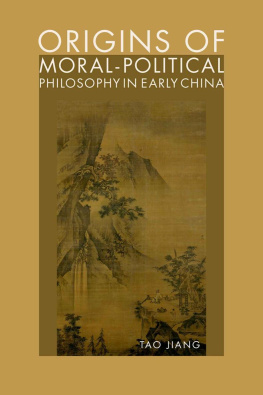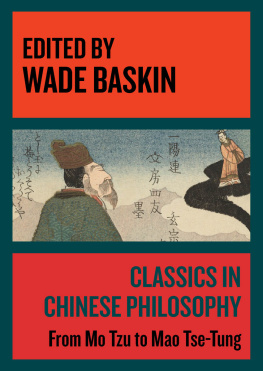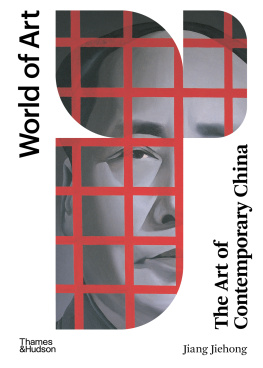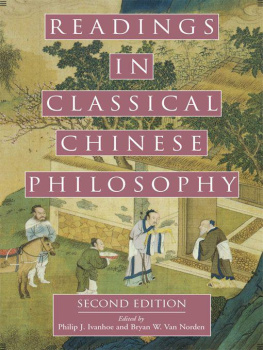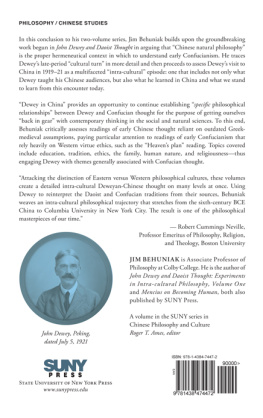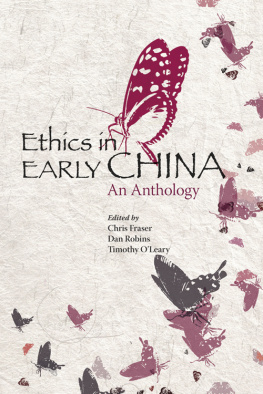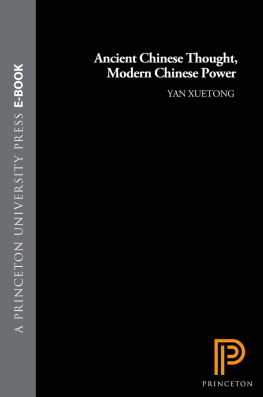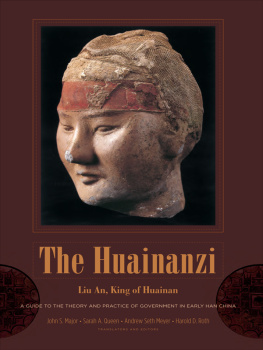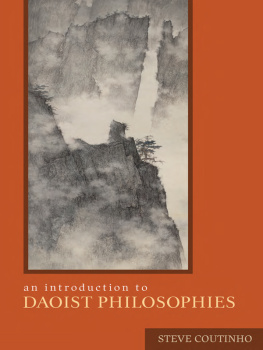Origins of Moral-Political Philosophy in Early China
Origins of Moral-Political Philosophy in Early China
Contestation of Humaneness, Justice, and Personal Freedom
TAO JIANG


Oxford University Press is a department of the University of Oxford. It furthers the Universitys objective of excellence in research, scholarship, and education by publishing worldwide. Oxford is a registered trade mark of Oxford University Press in the UK and certain other countries.
Published in the United States of America by Oxford University Press
198 Madison Avenue, New York, NY 10016, United States of America.
Oxford University Press 2021
All rights reserved. No part of this publication may be reproduced, stored in a retrieval system, or transmitted, in any form or by any means, without the prior permission in writing of Oxford University Press, or as expressly permitted by law, by license, or under terms agreed with the appropriate reproduction rights organization. Inquiries concerning reproduction outside the scope of the above should be sent to the Rights Department, Oxford University Press, at the address above.
You must not circulate this work in any other form and you must impose this same condition on any acquirer.
Library of Congress Control Number: 2021913732
ISBN 9780197611364 (pbk.)
ISBN 9780197603475 (hbk.)
ISBN 9780197603499 (epub.)
DOI: 10.1093/oso/9780197603475.001.0001
To Biyun
Contents
This book was initially conceived of as a project on Zhuangzis philosophy a decade and a half ago. In the course of doing the research and formulating what I believed to be a cogent and compelling Zhuangist project of personal freedom, I felt it necessary to account for the Confucian and the Mohist ideas critiqued and ridiculed by the Zhuangists as a way to frame the Zhuangist project. However, I quickly realized the inadequacy in my understanding of the Confucian and the Mohist projects, which were the mainstream moral-political projects during the Warring States period. Sure, I was familiar with the basic concepts, the standard narratives and interpretative tropes, and various points of disputation, but I only had a vague sense of the philosophical nature of their projects. More specifically, I did not know what guiding values were motivating those thinkers and why those values were important to them. Therefore, it seemed only natural to expand my study to include all the major thinkers of the classical period, which eventually became this monograph over a decade later.
Therefore, this book was driven by a desire to understand the origins of moral-political philosophy in China, especially the nature of major philosophical projects, the intellectual parameters within which they originated and operated, the changing normative boundaries that were, more often than not, crossed and transgressed, as well as the guiding (and evolving) values that motivated early Chinese philosophers to grapple with a radically changing world. It offers a new narrative and interpretative framework about the origins of moral-political philosophy that tracks how the three core values, i.e., humaneness, justice, and personal freedom, were formulated, reformulated, and contested by early Chinese philosophers in their effort to negotiate the relationship among three distinct domains, i.e., the personal, the familial, and the political. Such efforts took place as those thinkers were reimagining a new moral-political order, debating its guiding norms, and exploring possible doctrinal sources within the context of an evolving understanding of Heaven and its relationship with the humans.
Over the years, I have benefited greatly from conversations and discussions on many aspects of the project with friends and colleagues at conferences, workshops, guest lectures, and dinner tables, as well as through private correspondences. I would like to especially acknowledge my indebtedness to Philip J. Ivanhoe, who read an early draft of the manuscript and offered many invaluable comments that were very helpful in improving the book. I also want to thank the following friends and colleagues who helped me at different phases of the project: On-cho Ng, who invited me to present parts of my project at the Penn State Comparative Literature luncheon and who has continuously encouraged me and expressed confidence in my project over the years; Masayuki Sato , who shared with me his works on Xunzi; and Zheng Jiewen , who helped me to gain access to his works on Mozi. I am grateful to colleagues at Peking University (Beijing), Fudan University (Shanghai), Jilin University (Changchun), and National Taiwan University (Taipei) for their kind invitations to present materials that have been incorporated into this book.
At Rutgers University I have been very fortunate to have supportive friends and colleagues in the departments of Religion, Philosophy, and Asian Languages and Cultures, as well as at the Center for Chinese Studies. They have provided a collegial environment for my professional life. I want to express my gratitude to James Turner Johnson of the Religion Department for his sagely advice over the years, especially when I first became department chair in 2010. Emma Wasserman and I have been kindred spirits since she came to Rutgers in 2008. I especially enjoyed our many meetups at the Think Coffee in Chelsea, NYC, during our sabbatical several years ago to update each other on the progress of our own projects. My friendship with Wendy Swartz in the Department of Asian Languages and Cultures has lasted longer than our respective affiliations with Rutgers. I have learned a great deal from the Chinese Medieval Studies Workshop she has been hosting over the years. Larry Temkin of the Philosophy Department offered detailed comments on an earlier draft of my paper on Zhuangzi and Berlin, which is incorporated into the conclusion of this book. Ruth Chang (now at Oxford) and Dean Zimmerman of the Philosophy Department have been great partners in the effort to bring Chinese philosophy to Rutgers through the Rutgers Workshop on Chinese Philosophy (RWCP) we started together in 2012. Stephen Angle of Wesleyan University has been an indispensable part of the RWCP initiative from the very beginning. Other friends and colleagues at Rutgers, including Edwin Bryant, Jessey Choo, Xian Huang, Tia Kolbaba, Sukhee Lee, Mingwei Liu, Xun Liu, James Masschaele, Jawid Mojaddedi, Nancy Rosario, Susan Rosario, Tanja Sargent, Richard VanNess Simmons, Weijie Song, Louisa Schein, Xiaojue Wang, Joseph Williams, and many others have all made my professional life at Rutgers a deeply fulfilling one.
I want to thank the two anonymous reviewers for their hard work in making this book a better final product. It would be an unforgivable omission if I did not mention the extraordinary vigor and care demonstrated by reviewer #2. The detailed and thorough, chapter-by-chapter, nine-page single-spaced comment on the manuscript goes far beyond what is normally expected for an anonymous review. It is vigorous, critical, and fairreally the best kind of review an author can receive.
A special thanks goes to Lucy Randall, my editor at Oxford University Press, whose empathy, reassurance, and understanding in guiding me through this entire process was simply exemplary. Hannah Doyle at Oxford University Press was also very helpful in shepherding the book through its final stages. I am grateful to Sara Ellenbogen, who proofread an earlier version of the manuscript.

